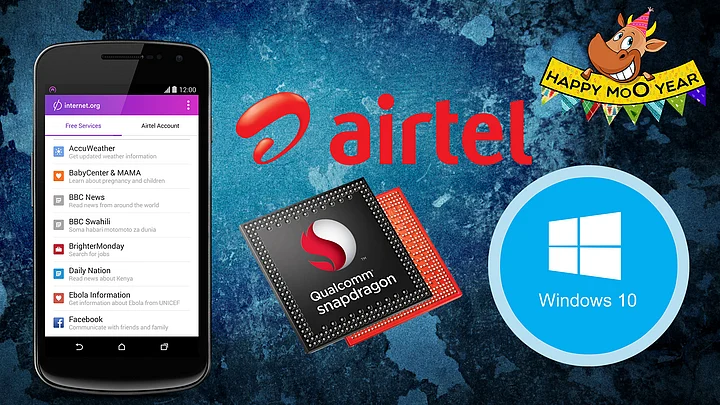To err is human, and tech companies, are after all run by humans. So, from time to time, these companies commit a faux pas that can become, at the very least, a PR nightmare. And if they’re really unlucky, it can stick with the company for the rest of its life.
While controversies and failures happen every year, this year’s tech fails can, in many ways, be considered good for the future of the industry in general. In 2015, we saw new technology emerge, from innovative apps to virtual reality. There were some missteps in between, but many of them will serve as a precedent for the future.
Heating, Heated, Hot!
Perhaps the best-recognised failure this year, the Qualcomm Snapdragon 810 SoC (System on Chip), which was Qualcomm’s flagship processor for the year, was found to be too hot to handle, literally. It wasn’t expected of a company like Qualcomm, which has grown to almost monopolise the smartphone market over the years.
While reports of the Snapdragon 810’s heating issues started coming in even before the SoC actually made it to the market, the first real blow came when Samsung dropped the SoC from its flagship Galaxy S6 and S6 Edge smartphones. Of course, Samsung’s reasons may also have been to push its own SoCs, but we suspect the heating issues had something to do with it. Qualcomm’s monopoly makes it difficult for OEMs to not use its SoCs in their devices, but the Snapdragon 810’s failure gave them a chance.
Arch-rival, MediaTek announced its Helio series, while Huawei had already been making headway with its Kirin SoCs. The real impact of the Snapdragon 810’s heating issues will not be known till maybe the end of next year, but it was at the very least, a black mark on Qualcomm’s otherwise glowing record in the smartphone market.
Zero Hour
Who doesn’t remember the mass outrage over the Airtel Zero initiative? The telco’s efforts to make money off service providers, to boost revenues, sparked the net neutrality debate for the first time, in India. Airtel wanted companies like Flipkart to pay the company, which in turn would allow its users to browse Flipkart for free. This was seen to be against net neutrality principles and mass outrage followed on social media, newspapers, websites, online forums and so on.
It did a lot of good, though. The Indian government woke up, recognising the need to get a handle on the net neutrality issue. Has the government done what it needed yet? No, but the fact that net neutrality is a mainstream subject in India today, is all thanks to Airtel Zero, and while there’s still a lot of misinformation, it sets a precedent.
Internet.org
The net neutrality debate was further fuelled by Facebook’s Internet.org programme, now called Free Basics. The company allowed access to certain websites for free, in the name of bringing Internet access to the poor. But wait, only users on Reliance’s networks would be allowed to do so and only certain websites would be available, Facebook included of course. See the problem?
To Free or Not to Free
Despite the mass adoption and success of Microsoft’s Windows 10 operating system, who can forget the massive confusion around whether the company would give it for free to all users. Well, it’s clear now, but the confusion prevailed until the day Microsoft launched Windows 10 to the public. Turns out, with Windows being a service now, Windows 7 and 8 users can upgrade to Windows 10 for free, but they’ll have to pay subscription charges from next year onwards.
The Konami/Kojima Conundrum
This one’s only for the gamers. Video gaming legend, Hideo Kojima, who had been with publisher/developer Konami for ages, suddenly left the company this year. Rumours and speculation as to why Kojima left followed and it is, in fact, not completely clear even now. Kojima’s last game for the company, Metal Gear Solid V: The Phantom Pain, cost Konami a pretty penny to make, which could have had something to do with all this.
(Som Dasgupta is a freelance journalist who thrives on everything tech. After all the time he’s spent around technology, he’d like to think he’s turned into a robot.)
